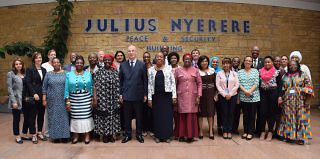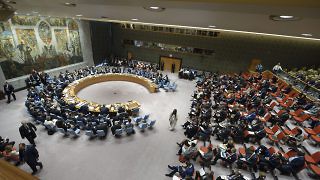What “partnership” means in reality is still somewhat unclear, but the work that regional organizations are already doing provides helpful insights.
Tag: sustaining peace
-
-
FemWise-Africa has an ambitious agenda which, in order to implement, will require challenging some of the foundational assumptions of mediation.
-
Integrating local voices into formal peace processes is crucial to allowing different perspectives to be taken into account.
-
Now is an ideal time to take stock of how the concept of sustaining peace has developed since it was adopted and assess the challenges to its implementation.
-
The two can together contribute, potentially, to significant positive change in how the UN and World Bank approach, manage, innovate, and resource their peacebuilding work.
-
Nearly two years after the resolutions, questions remain as to whether discussions on sustaining peace are reaching beyond UN headquarters, and above all, how this new term resonates with local peacebuilders
-
A key question at this stage is how the gaps in the peacebuilding paradigm can best be addressed to foster greater ownership and effective implementation of the emerging concept of “sustaining peace.”
-
As the UN aims to more efficiently promote peace, how prepared is it to actually work with the nonviolent grassroots movements that have proven to be peacebuilding’s most effective tool?
-
To successfully implement the vision of sustaining peace, research and evidence on what works in peacebuilding and sustaining peace is still needed.
-
As much as the report offers, and it certainly ticks all the boxes from the sustaining peace resolutions, there is too much in it that is left unsatisfyingly “to be determined.”














